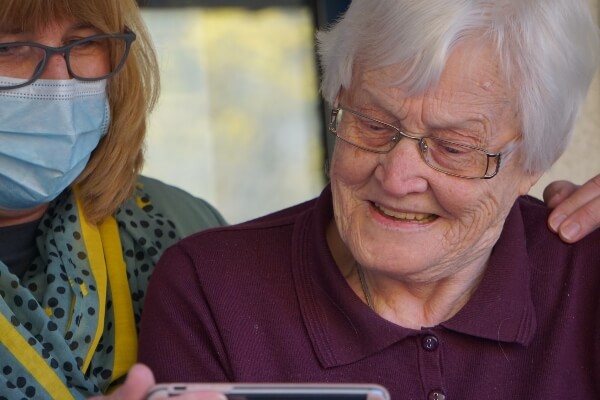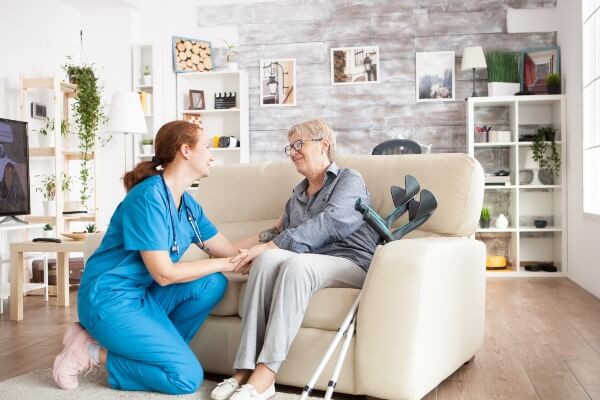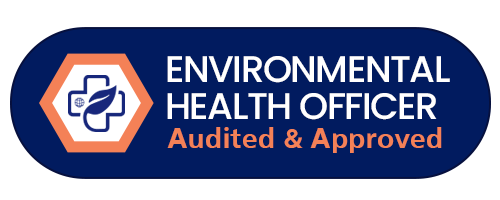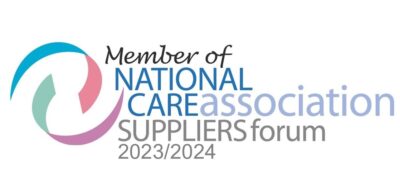What is Safeguarding in Health and Social Care?
Unsplash Licence – Georg Arthur Pflueger
Safeguarding is a key term used regularly by the UK government, schools and health services. Despite this frequency, many people are unaware of its meaning and implications. In health and social care, it is a vital concept that informs the types of support offered to vulnerable individuals.
Knowing what safeguarding in health and social care is and understanding its facets and nuances helps build effective, safe and respectful care systems for vulnerable people. With our helpful guide, you will learn why safeguarding is essential, who is at risk and the responsibilities of local authorities.
By Definition
In health and social care, safeguarding means protecting vulnerable people from abuse and neglect. It refers to the specific measures and policies in place to protect people that could be a risk due to their age, a disability or any other factor impairing their decision-making and health.
Why is Safeguarding Vital?
When someone cannot look after themselves without support, their risk of abuse and neglect increases substantially. Safeguarding is crucial in health and social care to offer the support required to monitor and maintain their health.
It is also vital for increasing their dignity and promoting their rights, as disabilities and impairments often reduce a person’s agency. Respectful care and support that meets their needs and preferences will protect them from harm without threatening their freedom and individual liberties.
Individuals That Need Safeguarding
In the UK, we categorise people in need of safeguarding into three groups to recognise their different requirements and meet them accordingly. Separating them is the best way to administer the highest level of care and protection, as the law can cater to each group individually.
Children
UK law considers anyone under the age of 18 a child. They cannot look after themselves without the support of a guardian and are vulnerable to abuse and neglect if unsupported.
Young People
Young people include anyone over the compulsory schooling age (16) and under 18. Due to their age and stage of life, they are in danger of particular kinds of abuse and neglect.
Vulnerable Adults
Adults receiving care in their own homes or care homes also need safeguarding. Issues like learning difficulties or physical, mental or sensory impairments hinder their ability to care for themselves independently.
Who is Responsible For Safeguarding?
Your local authorities have a duty of care to safeguard vulnerable people, and they must have a safeguarding adult board responsible for protecting those in need in their jurisdiction. The local authority, clinical commissioning group and a senior member of the local police force should all be on the board and individuals such as GPs and carer groups may be invited to meetings.
The board is also responsible for investigating potential safeguarding issues. These inquiries uncover improper processes and responses that may have led to abuse or neglect. The board can then recommend new developments and protocols to prevent future problems.
UK Safeguarding Legislation
Three main pieces of UK legislation dictate and protect the rights of vulnerable people, explaining how authorities and caregivers must safeguard them.
Childcare Act 1989
In 1989, the UK government passed the Childcare Act to set out the staple principles of safeguarding children. Primarily, it rules that a child’s safety is paramount, no matter the views and wishes of their parents or anyone else in their life.
Safeguarding Vulnerable Groups Act 2006
This act was passed to prevent unsuitable individuals from working with and caring for vulnerable people. It created registers of people unfit for supporting children and adults to protect them from these people.
Care Act 2014
The Care Act explains the integration of health and social care between national health boards and local authorities. It lays out the responsibilities of various individuals and organisations and creates a framework for safeguarding protocols.
Children and Social Work Act 2017
This most recent legislation clearly defines a child in care and a care leaver. It also introduces corporate parenting principles designed to adjust the culture of local authorities to ensure that every department considers the welfare of the children in their care.
Abuse and Neglect
Unfortunately, vulnerable people are often open to abuse and neglect when safeguarding protocols are not in place. They can come in many forms and are often difficult to identify. But recognising the early signs is crucial to protect people in care from harm.
Abuse includes:
- Physical Abuse
- Sexual Abuse
- Psychological Abuse
- Domestic Abuse
- Discriminatory Abuse
- Financial Abuse
Neglect includes:
- Ignoring care needs, including medical, emotional or physical care
- Withholding life necessities, such as food, water, heating, medication
- Access to care, support or service, whether that’s medical or educational
- Self-neglect can affect their hygiene, health and environment
Remember that anyone close to a vulnerable person can subject them to abuse and neglect. Cases may be tough to identify, but due diligence helps protect people.
The Six Principles of Safeguarding
When implementing safeguarding in health and social care, you should follow the six principles of safeguarding. They are the crucial steps to delivering the best possible care and will inform you policy:
- Empowerment – Let vulnerable people make decisions about their well-being and life, potentially supported by others
- Prevention – Prevent any abuse or neglect
- Proportionality – Never intrude on vulnerable people’s lives and rights more than necessary
- Protection – Offer support and representation to those at risk
- Partnership – Work with other carers and local authorities to administer better care
- Accountability – Track every responsibility in the safeguarding process to ensure carers and local authorities follow it correctly
Get Qualified to Administer Health and Social Care Safeguarding
If you are passionate about caring for vulnerable people and protecting them from abuse and neglect, our care certificates are ideal.
At Caredemy, we offer dozens of affordable CPD Accredited social care courses and certificates that teach you about vulnerable people and the best ways to support them. You will learn the necessary skills to administer effective care that you can take into your career or use daily to help others. Plus, they are open to individuals and groups, so your entire team can learn together.
You can enrol online today, and we offer a 14-day money-back guarantee if you are not satisfied. Our friendly staff are always available to answer any questions you may have. Simply contact them with any queries.













